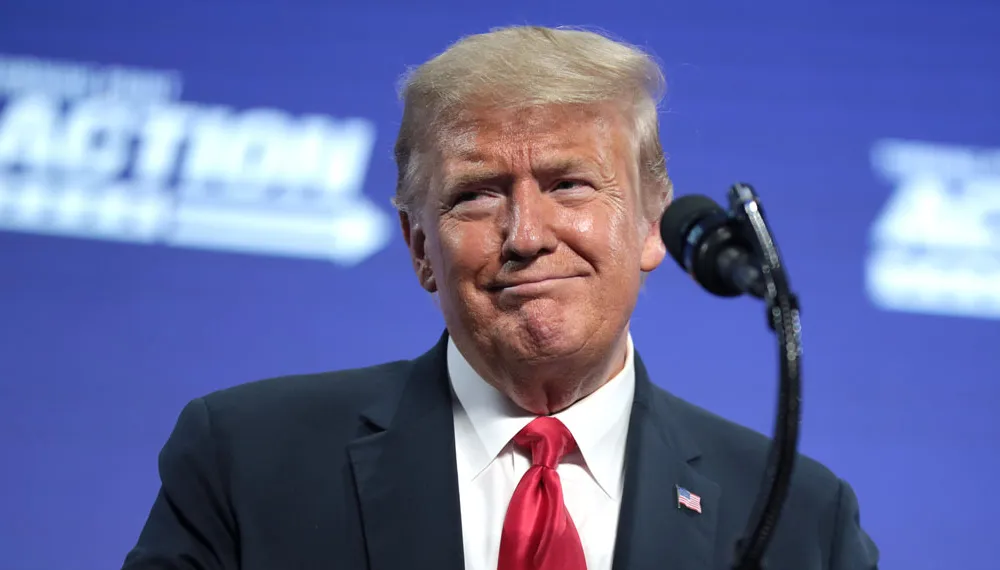Accountability
Study: Trump’s claims of election fraud may have hurt GOP in 2021 Georgia runoffs

New research which was published in the Proceedings of the National Academy of Sciences touts evidence that those who raised doubts about the authenticity of the 2020 election results were less likely to vote in the Georgie run-off elections.
After the 2020 election results were made public, Trump made allegations of voter fraud and that the election had been stolen from him.
The authors of the study looked into whether there was a correlation between voters who believed that fraud occurred in the 2020 election and Democrats flipping two seats in Georgia.
Study author Jon Green, who is also a senior research scientist in the Network Science Institute at Northeastern University, released his thoughts on the findings.
“Trends in U.S. politics are such that Democratic and Republican politicians are both vocally suspicious of their opponents’ respect for the ‘rules of the game’ in our democracy,” Green said.
“To be clear, these suspicions come with very different levels of empirical support. These conspiracy theories about widespread voter fraud on the part of Democrats really are baseless. But that doesn’t change the fact that both parties’ core voters are hearing from their leaders that the other side is trying to take away their ability to vote their preferred candidates into office – either by making it harder to vote, loosening the relationship between votes and outcomes (through gerrymandering, e.g.), or through fraud that ignores legally cast votes altogether.”
He continued, “And there are debates within the parties about whether this kind of rhetoric is counterproductive,” Green continued.” People who work in Democratic politics, for instance, are sometimes worried that Democrats’ allegations that Republicans are engaging in voter suppression could discourage potential Democratic voters from voting, on the margins, because it could create the impression that voting will be more difficult or inconvenient.”
“During the Georgia runoffs, we saw local Republican activists raising similar concerns about these fraud allegations – that they were discouraging Republican voters from turning out because they were introducing uncertainty into whether voting was going to have any relationship with the runoffs’ outcome.”
He added, “So, this question of whether there are any behavioral implications of this kind of elite rhetoric was what sparked my initial interest in the specific research question.”
The sampled over 45,000 people who were eligible to vote in Georgia and studied their social media history to look for a link between voter turnout and belief in 2020 election fraud.
Green told PsyPost that claims of voter fraud didn’t itself cost the GOP two seats in Georgia, but it certainly didn’t help them.
“We can’t say for sure whether the ‘Big Lie’ cost Republicans control of the Senate, but our study provides some evidence that it didn’t help their candidates in the Georgia runoffs. All of our findings surprised us in the sense that there were good reasons to expect different results and we really weren’t sure what we’d find until we analyzed the data,” Green said.
Green explained how the raw emotion of believing the election was stolen didn’t convert itself into votes.
“It was reasonable to expect that endorsing election conspiracy theories would have been associated with higher turnout in the runoffs because the conspiracy theory made people angry, and prior work has linked anger to things like party loyalty and intentions to vote. So, if we had observed that positive relationship, it would have made sense,” Green explained.
“However, translating anger into action typically requires it to be paired with efficacy – a belief that you can do something to address the threat you perceive. Here, a central premise of the conspiracy theory – that election results in Georgia are not directly based on the votes its citizens cast – likely reduces efficacy, so the results we found also make sense,” Green went on to say.
Terry A. Hurlbut has been a student of politics, philosophy, and science for more than 35 years. He is a graduate of Yale College and has served as a physician-level laboratory administrator in a 250-bed community hospital. He also is a serious student of the Bible, is conversant in its two primary original languages, and has followed the creation-science movement closely since 1993.
-

 Accountability4 days ago
Accountability4 days agoWaste of the Day: Principal Bought Lobster with School Funds
-

 Civilization1 day ago
Civilization1 day agoWhy Europe Shouldn’t Be Upset at Trump’s Venezuelan Actions
-

 Executive2 days ago
Executive2 days agoHow Relaxed COVID-Era Rules Fueled Minnesota’s Biggest Scam
-

 Constitution3 days ago
Constitution3 days agoTrump, Canada, and the Constitutional Problem Beneath the Bridge
-

 Christianity Today1 day ago
Christianity Today1 day agoSurprising Revival: Gen Z Men & Highly Educated Lead Return to Religion
-

 Civilization2 days ago
Civilization2 days agoThe End of Purple States and Competitive Districts
-

 Executive2 days ago
Executive2 days agoWaste of the Day: Can You Hear Me Now?
-

 Civilization5 days ago
Civilization5 days agoThe Conundrum of President Donald J. Trump



We do know the vote fraud was occurring. It has been documented in the public arena. CNN was broadcasting a local Senate race and one candidate votes went up by 250 votes and at the same time the other candidates votes went down by 250 votes. They quickly took the vote machine video off the broadcast. If people opted to not vote it is because they decided their vote was meaningless.